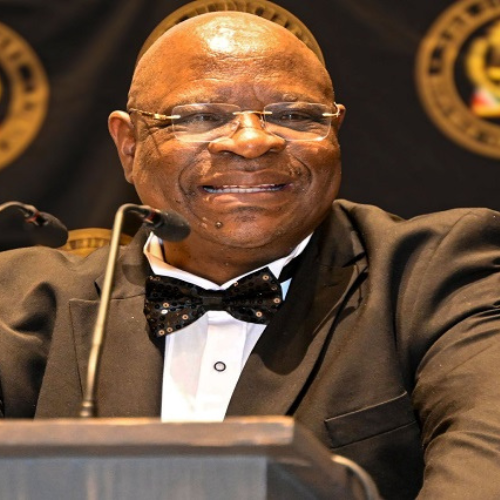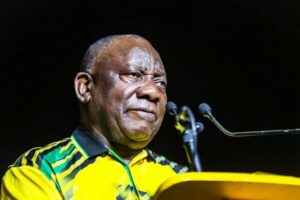
Members of the judiciary will hold a special sitting in the Constitutional Court in Johannesburg on Wednesday to honor the outgoing Chief Justice Raymond Zondo. This follows a function held last night to celebrate Zondo’s 27-year career in the judiciary. The head of the judiciary is set to retire at the end of this month. Law experts highlighted Zondo’s time as the Chairperson of the State Capture Commission as the hallmark of his career as they reflected on his career.
Addressing guests, Zondo described the four years of the commission as challenging. But he emphasized the significance of the role of the public in ensuring that those responsible for state capture were held accountable.
“Of course, greater challenges lay ahead of me when I was chairperson of the commission. I will be eternally grateful for the support … the support we received from the general public of South Africa through very difficult times.
“That support kept us going even when it was very dark. Because wherever I [went] I always met people who said thank you for the job you are doing for the country. That for me, was such a motivation that we could not let the people of South Africa down,” added Zondo.
Retired Chief Justice Mogoeng Mogoeng, a friend of the outgoing Chief Justice, clarified that he did not push for Deputy Chief Justice Raymond Zondo to lead the State Capture Commission. Zondo was appointed to chair the Commission in 2018, following a recommendation by then Public Protector, Professor Thuli Madonsela. The Commission’s primary goal was to investigate allegations of state capture during former President Jacob Zuma’s time in office. During Zondo’s farewell event, Mogoeng mentioned that he had approached several judicial officers without success before Zondo took on the role.
“It wasn’t a favor. No, I did nothing to help this man advance in his career. He worked hard and earned his position. He made all of us who are privileged to have or assume positions of responsibility understand that we shouldn’t just sit comfortably and expect the position to change us. We have to define the leadership role we hold. It won’t change us for the better. We have to come and revolutionize the institution we’re part of.”
This chapter would be challenging for the then-chairperson of the Commission and his staff. However, financial constraints and multiple threats would not hinder Zondo in his pursuit to unearth the rot that shook the foundations of South Africa’s constitutional democracy.
Justice and Constitutional Development Minister, Thembi Simelane praised Zondo for leading the Commission as the country tried to uphold the rule of law.
“This was a task that you undertook with dignity, fairness, and integrity… [applause]… The work of what is now known as the Zondo Commission remains an integral part of our efforts to rebuild our country in the wake of one of the most shameful periods in our democratic history. The Zondo Commission was an affirmation of our constitutional order, the rule of law, and the strength of our institutions.”
An emotional Zondo briefly reflected on this period and emphasized the role of the public in ensuring that those responsible for State capture were held accountable.
“During my time as chairperson of the commission, I faced significant challenges. I will always be grateful for the support we received from the general public of South Africa during very difficult times. This support kept us going, even during the darkest moments. Whenever I met people, they would express their gratitude for the work we were doing for the country. This was incredibly motivating, and it drove us to not let the people of South Africa down.”




